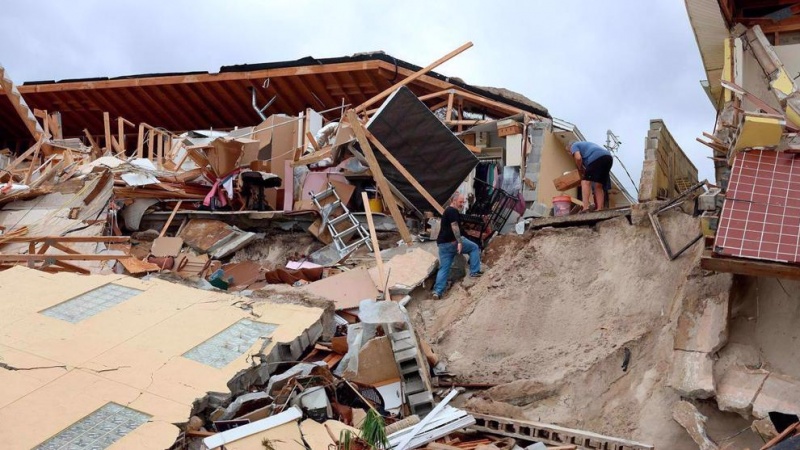Nicole leaves 'unprecedented' destruction in Florida, kills at least 5
At least five people are dead after Hurricane Nicole hit Florida’s east coast, severely damaging hotels and apartments.
In Volusia County, local officials evacuated 24 beachfront hotels and apartments due to unsafe conditions later in the day after the storm made landfall as a Category 1 hurricane.
Two people were electrocuted in Orange County, while two others died in a car crash on Florida's Turnpike, according to the Orlando Sentinel.
The storm's sustained winds of 75 mph (120 km/h) downed power lines Thursday, knocking out service to more than 300,000 homes and businesses.
About 44,500 homes and businesses were without power Friday, according to PowerOutages.us.
"The structural damage along our coastline is unprecedented," Volusia County Manager George Recktenwald said in a statement. "This is going to be a long road to recovery."
Engineers believe many of the homes damaged or destroyed in the storm date back to the 1950s, decades before strict hurricane-proof building codes were enacted.
They added that the shallow foundations and relatively low seawalls were no match for a storm surge that coincided with high tide.
"If you built your house or hotel 50 years ago, there's no way to make the owners retrofit them," said Sinisa Kolar, a Miami-based structural engineer with the Falcon Group.
A new draft written by the authors of the National Climate Assessment shows that many of the harmful effects people are already experiencing around the world will worsen as the air warms, and new risks will emerge in the future.
According to the draft, the United States has warmed about 68 percent faster than the planet as a whole over the past five decades, rising 2.5 degrees Fahrenheit (1.4 degrees Celsius) above pre-industrial levels.
The report also states that the land has warmed faster than the ocean, higher latitudes have warmed faster than lower latitudes, and the Arctic has warmed the fastest.
It is also pointed out that weather-related natural disasters cause huge economic losses through damage to infrastructure, disruption of vital services and loss of property.
The United States has experienced an average of nearly eight $1 billion disasters each year for the past forty years but has seen that average increase to nearly 18 events per year in the past five years.
SS



